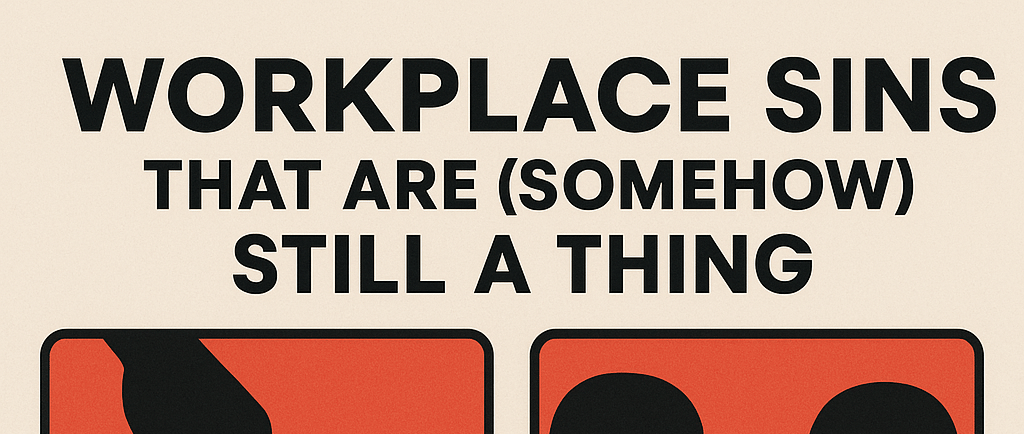Workplace Sins That Are (Somehow) Still a Thing — And Why It’s Time to Let Them Go
It’s 2025. We’ve landed on Mars (kind of), AI is writing emails, and hybrid work is the new normal. But in many workplaces? Some habits from 2005 are still thriving—and not in a good way.
Kamy Charles
4/4/20252 min read


Let’s call them what they are: workplace sins.
The kind that seem small, but add up to big frustrations, burnout, and turnover. The kind that make talented people roll their eyes, update their LinkedIn profile, and quietly look for the exit.
Here are a few we can’t believe we still need to talk about:
1. Micromanagement Masquerading as “Support”
Hovering over every detail? Constantly checking in? That’s not leadership—it’s a trust issue. Empower your team and watch performance actually improve.
2. The “Reply All” Epidemic
Unless you’re organizing a potluck or announcing your retirement, that mass email thread doesn’t need your “Thanks!”
3. Meetings with No Purpose
If the meeting could’ve been an email, then let it be an email. Time is currency—spend it wisely.
4. Toxic Positivity
Telling people to “smile more” or “just be grateful” while they’re burning out is gaslighting, not culture.
5. After-Hours Expectations
It’s not a badge of honor to be “always on.” Respecting boundaries helps everyone perform better—during working hours.
6. Calling the Office “Family”
No one should be guilted into unpaid overtime or emotional labor in the name of “family.” Workplaces should foster respect, not codependency.
Why These “Sins” Still Exist
Old habits die hard—especially when leadership hasn’t been challenged or held accountable. But in today’s evolving workplace, clinging to outdated practices isn’t just annoying—it’s a liability.
Smart leaders know: Culture eats strategy for breakfast. And culture starts with how people are treated every single day.
What You Can Do About It
If you’re a people leader: challenge these norms. Model something better. If you’re a team member: speak up, set boundaries, and call things out with tact and clarity.
Because high-performance teams don’t thrive on fear or outdated expectations—they thrive on trust, communication, and respect.
Final Thought
Work shouldn’t feel like a punishment. Let’s retire the sins and build something better. Forward-thinking, human-centered, and actually productive.
What’s one outdated workplace habit you’re still seeing in your world? Drop it below—we’re shedding old habits and rewriting the rules together.
